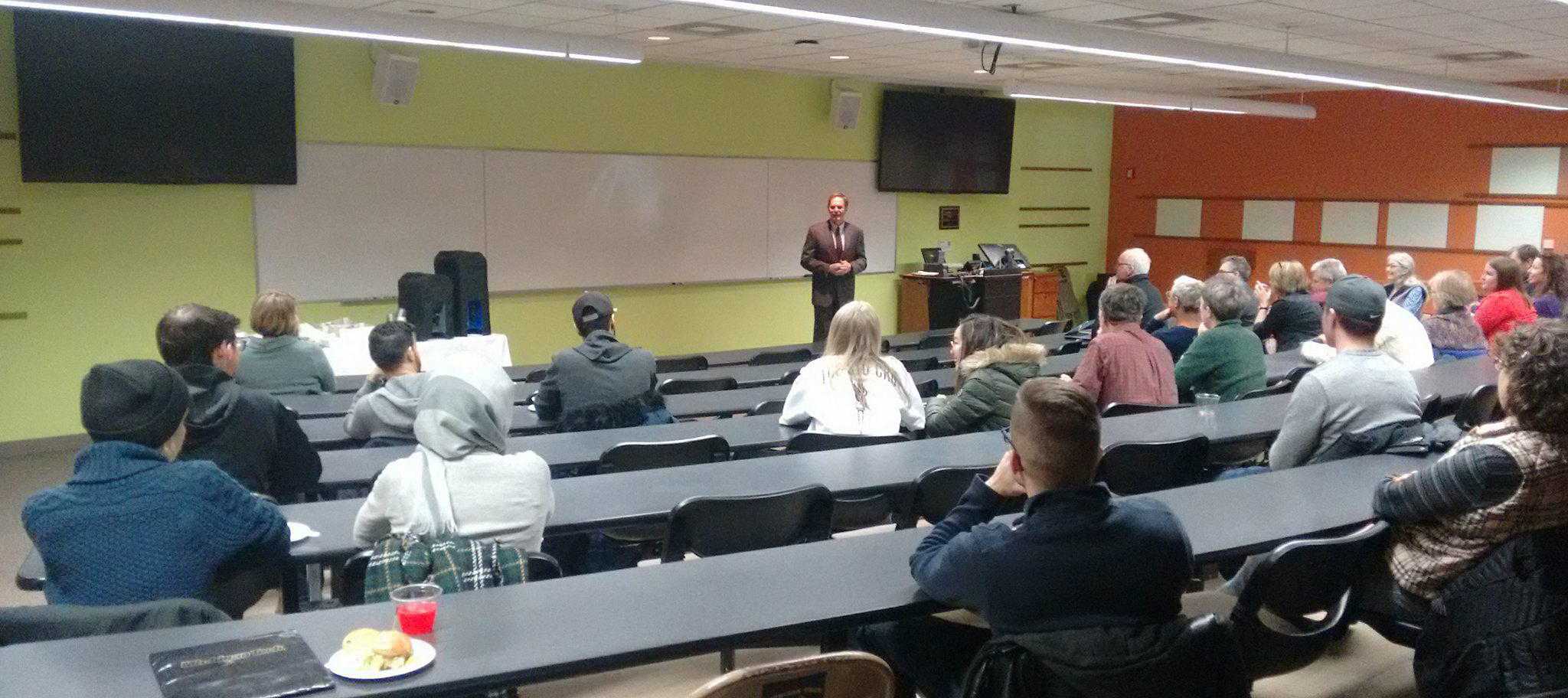On Wednesday April 4, former U.S. state department diplomat Todd Holmstrom spoke about “Dramatic Changes Occurring in Saudi Arabia.” The talk was held at Dow 642, with an audience comprised mostly of international students and professors. The talk began with an introduction to Saudi Arabia’s crown prince Mohammed bin Salman, and his vision to bring change to his country. But why talk about this in Houghton?
It so happens that effects of technological, energy and cultural reform in Saudi Arabia will have a significant impact on the prices of goods and services in our city, mainly oil. There are also concerns for students and staff that would be making trips to Saudi Arabia in the near future.
Eventually, Saudi’s oil monopoly will cease, causing alternate commodities to attempt to take its place, thereby shaking the world economy. Mohammed bin Salman, nicknamed MBS, is the new up and coming leader of Saudi Arabia. His bold visions are expected to bring such changes.
According to Holmstrom, missionaries and universities laid the foundation for relationships between the US and Middle East. Later in 1933, Salman’s grandfather signed an oil deal with the private sector of the US. Since then, significant change in religious or political practices have not been observed. This is probably attributed to the history of the Middle East, and as mentioned by Mr. Holmstrom, Wahhabism.
According to this ultraconservative doctrine, Iran and Hamas are viewed as “existential threats”. They deemed art or freedom of expression to be illegal. Women did not have the same rights and privileges as in Western countries. But conservative practices even run in the royal family in Saudi Arabia. During congressional events, members of the royal family are organized in sequence based on their age. Even if an individual is two days older than his sibling, his opinions and views are given priority over the younger one. How does Salman fit into this? He is young, with several older siblings. Yet he is regarded as more motivated, ambitious and hungrier than his older U.S.-educated siblings.
Salman’s bold vision, called vision 2030, involves the following: 1. Change Saudi Arabia’s dependence on Hydrocarbons, and thereby diversify its economy. 2. Work on an entertainment industry: one that will remove conservative traditions that prevail in the country. 3. Make improvements in the field of technology, and invest in innovations for the future. 4. Find the next energy base: which reiterates removing dependence on fossil fuels. 5. Liberalize Saudi and get women rights.
“If there are two agents of change that will enable him to succeed, they are winning over women and the youth,” says Mr. Holmstrom. But the question that remains is “what if MBS is not a reformer?” If he succeeds King Salman of Saudi Arabia, Salman would be king for a long period of time. His vision could fail and result in revolts, although success would imply rights for women and a major reform for the country.
“We should first ask, is he an idealist or a pragmatist?” says Susanna Peters, lecturer in law and society in the Social Sciences Department. There were also concerns from attendees who were about to travel to Saudi Arabia in the near future. How would Salman’s reign impact them? The talk ended with Mr. Holmstrom discussing his experiences with Saudi nationals during dinners. The topic digressed into unity and diversity, and how a few minutes spent together with people from different cultures can lead to strong bonds and business deals that favor both countries. About MBS and his dreams, only time will tell.


